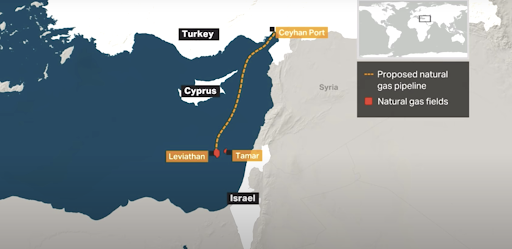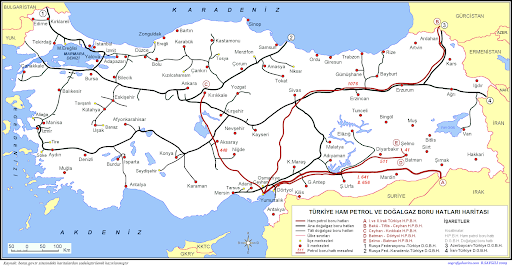Address
304 North Cardinal St.
Dorchester Center, MA 02124
Work Hours
Monday to Friday: 7AM - 7PM
Weekend: 10AM - 5PM
Address
304 North Cardinal St.
Dorchester Center, MA 02124
Work Hours
Monday to Friday: 7AM - 7PM
Weekend: 10AM - 5PM


2022 has proven to be the year that marked both Ankara’s diplomatic commitment to the relevant mediation attempts in the course of the Russia-Ukraine conflict and, above all, the implementation of a normalization agenda of Turkish foreign policy aimed at enhancing the bilateral relations that were appearing in a deadlocked status with a significant number of countries. The several visits paid by special envoys to MENA actors such as the United Arab Emirates, the Kingdom of Saudi Arabia and Egypt have been witnessing Turkey’s firm determination in restoring the global order during the turbulent times that we have been experiencing. Since the moment such normalization has gained momentum, it has increasingly become tangible through Ankara’s intentions even over the neighboring and historically rival Armenia or in the steps advanced towards war-torn Syria as well, until it has been recently confirmed by a considerable involvement with Israel. The attempted reconciliation with the latter may be interpreted as the ultimate move for Ankara’s regional rapprochement for well-known economic reasons and, more importantly, ought to be contextualized in the Eastern Mediterranean framework in light of some arguable implications and important prospects.
Taking a step back to the past, 2010 may be considered the year in which tensions between Turkey and Israel sharply flared; after Israeli commandos stormed a Turkish aid flotilla, killing at least ten pro-Palestinian activists who were trying to end Israel’s blockade of Gaza, the two Mediterranean nations withdrew their respective ambassadors from Ankara and Tel Aviv. Since then, Israel compensated the raid victims’ families with $20 million, and Turkey dismissed all crime accusations against Israeli officers, attempting to restore their diplomatic ties. Nevertheless, the developments of early 2018 reversed the situation as Turkey and Israel reduced the level of their mutual diplomatic presence to that of a chargé d’affaires, following the killing of dozens of Palestinian civilians by Israeli security forces amidst a protest against the decision to relocate the U.S. embassy from Tel Aviv to Jerusalem, which had been taken by the Trump administration on 14 May 2018. Such an announcement was applauded by then-Prime Minister Benjamin Netanyahu, as it was a clear indicator of the fact that the U.S. was officially recognizing Jerusalem as the capital of Israel. Since this precise moment, mutual resentment exacerbated as soon as the Israeli ambassador was expelled from Ankara and, subsequently, the Turkish ambassador was banished from Tel Aviv.
Yet, the visit recently paid by Israeli President Isaac Herzog to Ankara in March 2022 has been the decisive point from which to rethink the cooperation that two relevant Middle Eastern actors like Turkey and Israel might foster in the major geopolitical hotspot represented by the Eastern Mediterranean. Such rapprochement in this strategic geographic area of the world is worth being explored because of the scenario that might come out in light of relevant implications. First and foremost, Turkey got concerned about the possibility of resuming bilateral talks on the liquified natural gas (LNG) industry, especially once that the U.S. had publicly dismissed the ideas behind the EastMed project which had seen Israel in May 2019 teaming up with Cyprus, Greece, Italy, Jordan, and Palestine in a consortium that was established later in 2020 and got to be known as the Eastern Mediterranean Gas Forum (EMGF), with the objective to carry out some drilling activities in the region but with the exclusion of Turkey. Given the expensiveness and unviability of the EastMed highlighted by the U.S., the construction of a subsea pipeline from Turkey to the Israeli offshore natural gas fields Leviathan and Tamar, has been conceived at this point as a potential alternative also to Russian gas supplies, in the background of Europe’s rush for energy diversification in the course of the conflict in Ukraine.
Turkey is basically proposing Israel to transfer Leviathan gas supplies across the exclusive economic zone (EEZ) of the self-proclaimed and not internationally recognized Turkish Republic of Northern Cyprus, which would then reach the marine oil terminal situated at the port of Ceyhan, that is the destination of offshore assets in the Caspian Sea via the Baku-Tbilisi-Ceyhan pipeline. From Ceyhan Israeli gas supplies would be moved to the TANAP in order to reach European countries which are currently being supplied by Azerbaijan through the southern European corridor. However, the actualization and feasibility of such project might be argued in view of two options for delivering the supplies from Leviathan: either through already-existing LNG facilities in Egypt or a future floating LNG facility. Furthermore, envisioning such plan might complicate the course of the long-running dispute between Turkey and Greece over the fate of the de facto divided island of Cyprus; both countries are still in a manifest cleavage concerning the delimitation of their respective exclusive economic zones and jurisdiction over natural resources in the Mediterranean and Aegean territorial waters. In other words, such aspects might complicate its realization in the long run.

At any rate, besides being a realistic alternative for a more concrete energy partnership in order to supply natural gas to Europe throughout the ongoing energy crisis, Turkey is likely to enhance Israel’s national security by allowing for more intensive intelligence monitoring of the latter’s adversary Iran. At the same time, Ankara is expected to benefit from the investment needed to relaunch its wavering economy and, potentially, improve its position in Washington as well. Two meaningful outcomes of the constructive steps advanced by both Israel and Turkey during last summer, have been the Israeli ratification of a strategic aviation deal, which is enabling Israeli airlines to smoothly re-operate flights to Turkey after a 15-year hiatus, and the reopening of the Israel Ministry of Economy and Industry’s office in Istanbul, whose activities had been decreasing since 2019. The earlier statements made by Turkish Minister of Foreign Affairs Mevlüt Çavuşoğlu, according to which the two Mediterranean nations have started the process of reestablishing their bilateral diplomatic presence at the ambassadorial level, have just been corroborated by the final designation of the career diplomat Irit Lillian, who has hitherto committed to serving as Israel’s chargé d’affaires in Ankara, as the Israeli Ambassador to Turkey on 19 September 2022. In this sense, both Israel and Turkey seem to live a win-win situation in reenergizing their bilateral relations.